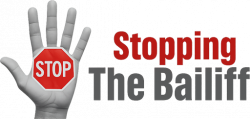What can bailiffs remove?

Bailiffs, also known as enforcement agents or sheriffs, are individuals authorized by the court to enforce judgments and collect debts. The specific powers and limitations of bailiffs can vary depending on the jurisdiction and the type of debt involved. However, in general, bailiffs have the authority to seize certain assets belonging to the debtor to satisfy the outstanding debt.
There are some common types of assets that bailiffs may have the power to seize:
- Personal Property: Bailiffs can seize personal possessions owned by the debtor, such as furniture, appliances, electronics, jewelry, and vehicles (including cars, motorcycles, and boats), to be sold at auction to recover the debt.
- Bank Accounts: Bailiffs can freeze and seize funds from the debtor’s bank accounts to satisfy the outstanding debt. However, certain funds may be protected, such as those related to social welfare or basic living expenses.
- Income: In some cases, bailiffs may be able to garnish the debtor’s wages, meaning they can deduct a portion of the debtor’s income directly from their employer.
- Real Estate: Depending on the jurisdiction and the circumstances, bailiffs may have the power to seize and sell the debtor’s property, such as houses or land, to satisfy the debt.
It’s important to note that bailiffs must follow specific legal procedures and adhere to certain restrictions when carrying out their duties. The rules and regulations governing bailiffs’ actions vary from country to country and can differ within different regions or states. If you are facing debt collection or enforcement proceedings, it’s recommended to consult with a legal professional familiar with the laws in your jurisdiction to understand your rights and obligations.

What must Bailiffs leave behind?
- Essential Items: Bailiffs are usually not allowed to seize essential items that a person needs for basic living, such as clothing, bedding, essential household appliances, or items needed for work (up to a certain value).
- Exempted Property: There are often specific items that are legally exempt from seizure by bailiffs. These can include tools or equipment necessary for a person’s trade or profession, certain household items of low value, and items necessary for basic needs (e.g., food).
- Jointly Owned Property: If the property in question is jointly owned by multiple people, bailiffs can usually only seize the debtor’s share, rather than the entire property.
- Property of Others: Bailiffs typically cannot seize property that belongs to someone else, even if it is located within the premises being visited.
- Protected Items: In some jurisdictions, certain items may be protected from seizure to ensure basic standards of living. These can include items related to healthcare, disability aids, and pension.
Can I do anything to stop my goods from being seized by Bailiffs?
Depending on the stage of the process you’re in, there may be options available for selling, hiding, or removing your goods from your home. However, it is crucial to determine your current stage before considering any of these actions:
- If you haven’t received the first “notice of enforcement” yet, it is permissible to sell, hide, or remove your goods.
- If you have received the notice but haven’t been visited by the bailiff yet, you can choose to hide or remove the goods. However, sold goods may still be seized as if they were still under your ownership. The bailiff is not obligated to recognize the sale.
- Once the bailiff has visited and a control order is in place, it is essential that you refrain from selling, hiding, or removing your goods. Engaging in such actions would constitute a criminal offense.

Seeking help with Bailiffs
To prevent a difficult situation from becoming distressing and traumatic, it is crucial to promptly seek unbiased expert advice upon receiving any written notification from a bailiff. Ignoring the letter in the hope that it will resolve itself is not recommended.
Our guidance can assist you in creating a reasonable budget and repayment plan, empowering you to proactively respond to debt collection agencies.
It is important to remember that bailiffs are primarily focused on debt collection. If you provide a clear and mutually agreeable path toward resolving the debt, they will be willing to collaborate with you. They share your interest in avoiding an escalation of the situation.
We are ready and willing to support you in obtaining the necessary advice and planning guidance. Please don’t hesitate to reach out to discuss your situation.

Is there any way I can stop the bailiffs from taking my goods?
Depending on the stage of the process you’re in, there may be options available for selling, hiding, or removing your goods from your home. However, it is crucial to determine your current stage before considering any of these actions:
- If you haven’t received the first “notice of enforcement” yet, it is permissible to sell, hide, or remove your goods.
- If you have received the notice but haven’t been visited by the bailiff yet, you can choose to hide or remove the goods. However, sold goods may still be seized as if they were still under your ownership. The bailiff is not obligated to recognize the sale.
- Once the bailiff has visited and a control order is in place, it is essential that you refrain from selling, hiding, or removing your goods. Engaging in such actions would constitute a criminal offense.
